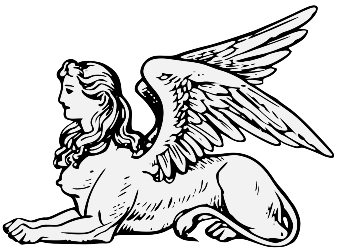Damia (Greek: Δαμια, meaning "Earth-Mother" or "Of the Land"), was a minor Greek goddess of the fertile earth. She is considered one of the Horae.
In some cases, Damia was a title of Demeter, the major greek goddess of the fertile earth and the harvest.
Myths & Legends[]
Damia is a goddess who brings back the fertility of the soil and the earth, generally in combination with Auxo.
She was primarily worshipped around Athens, and in the Argolis region (containing the cities of Argos, Troezen, and Epidaurus, among others). In Athens she was worshipped alongside Hegemone and Carpho, while in Argolis she was paired with Auxo/Auxesia. Argolis (specifcally the Argives) descirbed the two as Cretan maidens, probably priestesses, who may have been elevated to divinity following their martyrdom at the hands of local peasants.
Origins[]
According to a legend in Troesen, there was once an insurrection. Two Cretan maidens, named Auxesia and Damia (the latter perhaps representing Demeter) were stoned to death. Afterwards, the Troezenians paid divine honours to them, and instituted the festival of the Lithobolia (Greek: Λιθοβολια, meaning "Stoning").[1]
Famine in Epidaurus[]
Long ago, the people of Epidaurus were unable to grow any food. As such, they went to the oracle at Delphi, asking what to do, and she told them to set up statues of Damia and Auxesia. When they asked what the statues should be made of the priestess told them to make it out of olive wood. As such, "the men of Epidauros (Epidaurus) asked the Athenians to permit them to cut down some olive trees, supposing the olives there to be the holiest. Indeed it is said that at that time there were no olives anywhere save at Athens." [2]
The people of Athens agreed to give the trees, so long as they paid yearl tribute to Athena and Erechtheus (a king of Athens in Greek mythology). Agreeing to the demand, the Epidaurians were able to make the wooden statues. After setting up Damia and Auxesia, their land brought forth fruit.
Theft of the Statues[]
The people of Aegina (an island sitting between Epidaurus and Athens) were subject to Epidaurus, but after building their own ships the Aeginians revolted from them. During this revolt they stole the statues of Damia and Auxesia, and put them in the middle of their own home, then fulfilled certain rites to try and gain the favor of the goddesses. With the statues stolen, the Epidaurians stopped paying tribute to Athens, who tried to steal the statues back from Aegina in order to return Damia and Auxo to Epidaurus (so that the tribute would be paid again). However, while trying to drag the statues out the Athenian thieves were stopped by an earthquake and a thunderstorm. They were then consumed by madness, and all died but one. The Aeginetans added to this legend, that the statues, while the Athenians were dragging them down, fell upon their knees, and that they remained in this attitude ever after.
| Horae | |
|---|---|
| 12 Horae of the Hours | Auge • Anatole • Mousica • Gymnastica • Nymphe • Mesembria • Sponde • Elete • Acte • Hesperis • Dysis • Arctus |
| Horae of the Seasons | Eiar of Spring • Theros of Summer • Phthinophoron of Fall • Cheimon of Winter |
| Horae of the Harvest-times | Auxo • Carpho • Damia • Orthosia • Pherusa • Thallo |
| Personficiation Horae | Dike of Justice • Eirene of Peace • Eunomia of Good Order |
